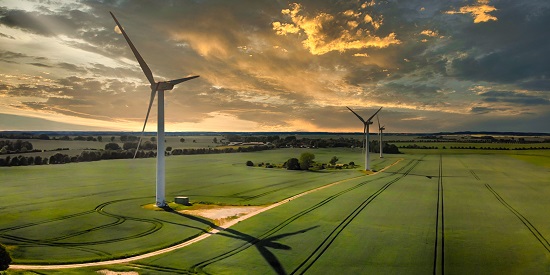Universities Accord must lead to Climate Education Strategy
Media release
Australia's widely supported emissions reduction and energy transition targets, and clean manufacturing and export ambitions are at risk unless Australian universities are supported to train more graduates to deliver clean energy innovation and projects.
Deakin Energy Networks - part of Deakin University - is urging the Universities Accord final report to recommend the development of a Climate Education Strategy to deliver the skills and qualifications necessary for Australia's transition to a renewable energy economy. Ultimately, failure to strategically embed the teaching and learning of these skills and knowledge would present significant environmental and economic risks.
Deakin Energy Network Director Peter Hansford said that a strong focus on the skills needed to help navigate, mitigate and adapt to the challenges and opportunities of climate change was consistent with remit of the Universities Accord review to:
“…make recommendations for Government, the sector and other relevant stakeholders to deliver a higher education system that meets the current and future needs of the nation, and targets to achieve this.”
Mr Hansford also notes the statement in the recently released Intergenerational Report (IGR2023):
“Climate change will affect the shape of Australia's economy, where and how Australians live, work and travel, the health of the population, migration patterns, food and energy security, and the state of our environment."
Deakin Energy Networks will be participating in the Careers for Net Zero Fair in Melbourne this week where the issue of skills preparedness for a successful transition to a clean energy economy will be top of mind.
Deakin Energy Networks' submission to the Accord argues that Australia is seen as lagging other nations when it comes to education system readiness for a clean energy economy and the transition.
The submission states that: "We are concerned about the shortage of relevant graduates and professionals in the pipeline for the renewable energy sector workforce to design, build and operate the necessary infrastructure and networks."
Recent research by Deakin Energy Networks and a diverse range of other organisations such as the Clean Energy Council, the Minerals Council and Engineers Australia bear witness to this risk.
To meet these challenges and opportunities, Deakin Energy Networks' submission has called for:
- the urgent development of a Climate Education Strategy by the proposed Tertiary Education Commission, to embed climate skills in all relevant university courses, and to lead work on identifying and funding universities to fill gaps in relevant fields of study and skills development.
- government and sector recognition that core and elective modules on climate and climate related knowledge should be included in all relevant degrees, as most fields of study also have a role in preparing for a clean energy future and operating in that new environment.
- agreement to the 'need' to lift our country's investment in R&D generally and, particularly, in clean economy studies, which is relevant to every faculty in every university.
- development of the Climate Education Strategy to reflect the current work underway to publish relevant 'green economy' employment and skills data and forecasts.
- acknowledgement that increased focus and new funding for universities to design and deliver green economy related skills and knowledge will also benefit Australia's international education goals by attracting new students to Australia who will contribute to our future as well as their own home countries' green economy ambitions.
Comments attributable to Peter Hansford, Director, Deakin Energy Networks.
"Australia is not on track to meet our emissions reduction targets as things stand, because we do not have the necessary numbers of climate ready graduates. There are simply not enough graduates in training to design, build and operate the projects required to transition. The status quo is not an option.
"The Universities Accord is a timely opportunity to focus on tertiary education readiness and requirements to equip their students with the skills and knowledge our country needs to meet the challenges and opportunities of transforming to a clean energy future.
"STEM, technical and scientific skills and knowledge are essential, but all university students should be offered climate related study options because the green economy will affect all of us and all our jobs."

